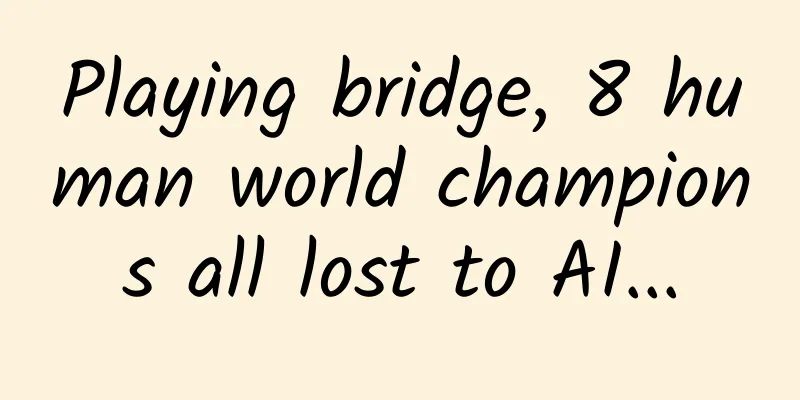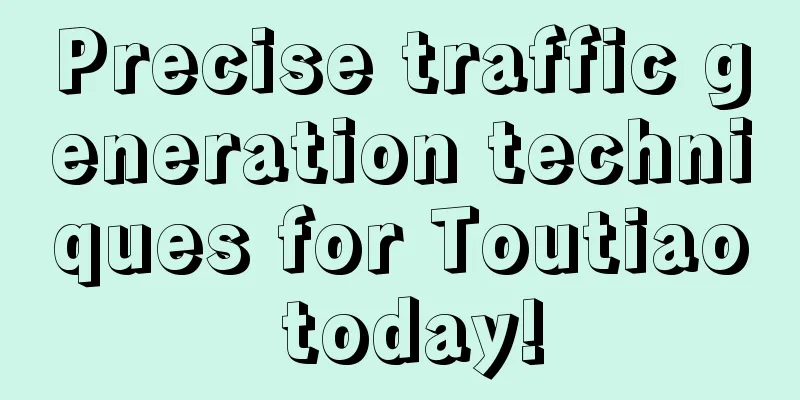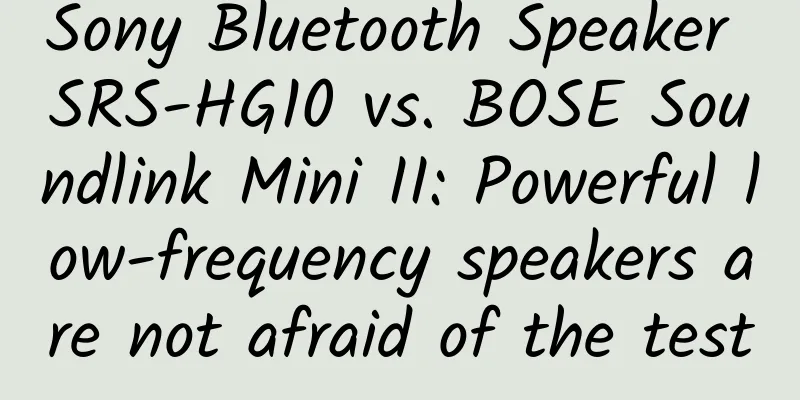Playing bridge, 8 human world champions all lost to AI...

|
Written by: Yang Xiao Recently, artificial intelligence (AI) has once again defeated humans. This time, the artificial intelligence did not play checkers, chess or Go, nor did it play "StarCraft", "GT Racing" or math Olympiad problems. Instead, it played a more entertaining card game - bridge. Figure|A bridge club at Shimer College in the United States in 1942 (Source: Wikipedia) According to The Guardian, an artificial intelligence named Nook defeated eight world bridge champions in a bridge tournament held in Paris, France last week. The win marks a new milestone for the AI industry because Nook is closer to making human-like decisions when it has to respond to the actions of several other human players using incomplete information. Although artificial intelligence has previously defeated humans in chess, Go and other games, the AI players at that time only had one opponent at a time, and both the human and the machine had all the information. Explainable AI Bridge is a card game in which tricks are won through skill. It is a trick-taking game and an extension of Whist (another card game). It is one of the most popular card games in the world, especially among the elderly. Bridge is played by four people in two pairs at a square table, with the partners sitting at opposite ends of the table facing each other. A session of bridge consists of many decks, and the order of a deck is first dealing the cards, then calling the cards to decide the contract, then playing the cards, and finally recording the result of the deck. The goal of a deck is to get the best score possible with the cards dealt to you. This time, in a bridge game called "The NukkAI challenge," Nook, who had the same deck of cards and the same opponent as the human champion, performed better than the human champion in 67 out of 80 matches. Picture|Game footage (Source: YouTube) In this regard, Véronique Ventos, an artificial intelligence researcher and co-founder of NukkAI, said that NooK is a "new generation of artificial intelligence" because it can explain when making decisions. "In bridge, if you don't explain, you can't continue to play." Stephen Muggleton, professor at Imperial College London, said the victory "represents a fundamentally important advance in the field of artificial intelligence". (Source: The Guardian) In recent years, explainability has been a hot topic in the field of artificial intelligence. Most of the advances in machine learning we hear about today are based on black box systems like AlphaGo, where AI cannot explain to humans how decisions are made. NooK represents a "white box" or "neural symbolic" approach. Instead of learning by playing billions of rounds of games, it first learns the rules of the game and then improves the game through practice. It is a combination of rule-based and deep learning systems, and its learning method is closer to that of humans. Michael Littman, a computer science professor at Brown University, said that even if a person or AI cannot explain in words what they are doing, their actions need to be "clear and understandable," which is critical in fields such as health and engineering. For example, a self-driving car about to pass through an intersection needs to be able to read the behavior of other vehicles. But Littman also said that the battle process also had shortcomings, because there was no bidding (also known as calling) process in the entire game, and bidding is the most interesting part of the communication and deception in bridge. But in the opinion of Nevena Senior, a world bridge champion and one of NooK's opponents this time, NooK can read its opponents better than humans and exploit their mistakes. The creators of NooK have done a "remarkable" job. "This is something humans do after accumulating enough experience. I am very surprised that robots can imitate human skills." A comprehensive review of the “man-machine game” Since the birth of artificial intelligence, the competition between it and humans has never stopped. Thirty years ago, in 1992, the international checkers artificial intelligence program Chinook challenged the world checkers champion Tinsley, who was known as the "best in the world". Unfortunately, Chinook lost. But two years later, Chinook regrouped and challenged Tinsley again. After the two sides tied after 6 innings, Tinsley retired due to illness and Chinook won the championship. This is the first time in history that an AI has won an official world championship in a competitive game. But Chinook's pace of progress did not stop. In April 2007, Chinook Ultimate Program was released, becoming an unbeatable existence in the field of international checkers. In the winter of 1996, the first chess match between man and machine took place in Philadelphia, USA. IBM's supercomputer "Deep Blue" played 6 games against chess champion Garry Kasparov. In the end, Garry Kasparov defeated "Deep Blue" with a total score of 4:2. This time, mankind defended its dignity. However, just one year later, in May 1997, the improved supercomputer Deep Blue challenged Kasparov again. After six games, the returning Deep Blue defeated the chess king with a record of two wins, one loss and three draws. This is the first time that artificial intelligence has defeated the world chess champion within the standard playing time limit. But from today's perspective, "Deep Blue" is not smart enough. Its flaw is that it has no intuition and does not have a real "intelligent soul". It can only rely on super computing power to make up for the shortcomings in analytical thinking. It wasn't until March 2016 that another "man vs. machine" battle shocked the world. AlphaGo, developed by DeepMind, an artificial intelligence company under Google, defeated the then Go world champion Lee Sedol with a score of 4:1, becoming the first artificial intelligence to defeat the Go world champion. This event is considered a true milestone in the artificial intelligence industry. Technically speaking, by using a method combining Monte Carlo tree search with two deep neural networks, AlphaGo can learn spontaneously like the human brain, conduct analytical training, and continuously learn to improve its chess skills. A year later, at the Go Summit in Wuzhen, China, AlphaGo defeated Ke Jie, the world's number one Go champion at the time, with a total score of 3:0. Since then, various forms of artificial intelligence have sprung up in fields such as e-sports, programming, and life sciences. For example, on December 10, 2018, AlphaStar, developed by DeepMind for the real-time strategy game "StarCraft", defeated 99.8% of the world's human professional players. In February of this year, DeepMind created an AI system called AlphaCode, claiming that the system's "programming ability can compete with ordinary human programmers." In the same month, an artificial intelligence program developed by Sony's artificial intelligence team also defeated world champion human players in the racing game "Gran Turismo". Today, artificial intelligence has penetrated into every aspect of our daily life, study, and work, and has capabilities that are comparable to or even surpass those of humans in certain specific tasks. Therefore, some people worry that the increasingly powerful artificial intelligence systems will evolve their own consciousness one day in the future, surpass humans, and even do more terrible things. In fact, the advantages of artificial intelligence lie in its super memory, computing power, and ability to work endlessly under extreme conditions. In this regard, current artificial intelligence has indeed surpassed humans in many areas. But from a technical perspective, current AI systems learn autonomously or are manually corrected based on given data and specified rules, and can solve specific problems under specific parameters. Once a variable is introduced, the system may collapse, or a new model may need to be created, which is far from the scenes described in science fiction movies. Humans and AI both have different abilities and strengths. AI cannot possess many of the unique abilities and characteristics of humans, such as emotional awareness and creativity, and humans cannot have super memory and computing power, or the ability to work endlessly, like AI. Therefore, what we really need to care about is how to make artificial intelligence collaborate better with humans. In any case, it is undeniable that artificial intelligence has indeed changed some things. Reference Links: https://www.theguardian.com/technology/2022/mar/29/artificial intelligence-beats-eight-world-champions-at-bridge https://en.wikipedia.org/wiki/Contract_bridge https://challenge.nukk.ai/ Source: Academic Headlines |
<<: Is alkaline water healthier? The "acid-base body theory" is completely pseudoscience!
>>: Can stickers not only cure emo but also help lose weight?
Recommend
How should we play “local self-media”?
The rise of local self-media is something that is...
Three steps to write an iOS network request library yourself
Code example: https://github.com/johnlui/Swift-On...
Some inter-provincial passenger routes in Beijing have been suspended! Which lines specifically? How long will it stop? Details attached!
Recently, the epidemic in Beijing has attracted t...
A Guide to KOL Advertising on TikTok
What is Douyin KOL? Users who frequently post vid...
Survey Report on Artificial Intelligence and Life in 2030
“AI and Life in 2030” examines eight areas of urb...
When using your mobile phone, do you prefer "normal mode" or "dark mode"?
I still remember when the dark mode was first upd...
Kudoso router: Let your kids do chores to earn time online
According to the National Institutes of Health, Am...
The sun sneezes, and the spacecraft is caught in the crossfire
The increasing frequency of human space activitie...
App promotion: 15 rogue promotion methods should be used with caution!
Rogue promotion methods are methods that some man...
The "residents" of the rainforest are quietly changing
Produced by: Science Popularization China Author:...
Yangjiang Mini Program Agency Company, how much does it cost to be an agent for an animation mini program?
Why should you be an agent for WeChat Mini Progra...
Using this technique for brand marketing slogans can increase the approval rate by 80%!
Text inserting is a rhetorical device that insert...
Postpartum care center-Tencent advertising customer acquisition strategy
Industry dynamics overview The market size has a ...
Chronic patients don't have to worry about winter! 6 "magic weapons" to warm the body and heart, family members must read
1. Dress like an onion, wrap yourself tightly lay...
Tesla collects 2 billion kilometers of Autopilot data to achieve fully autonomous driving
Recently, according to foreign media reports, as ...









